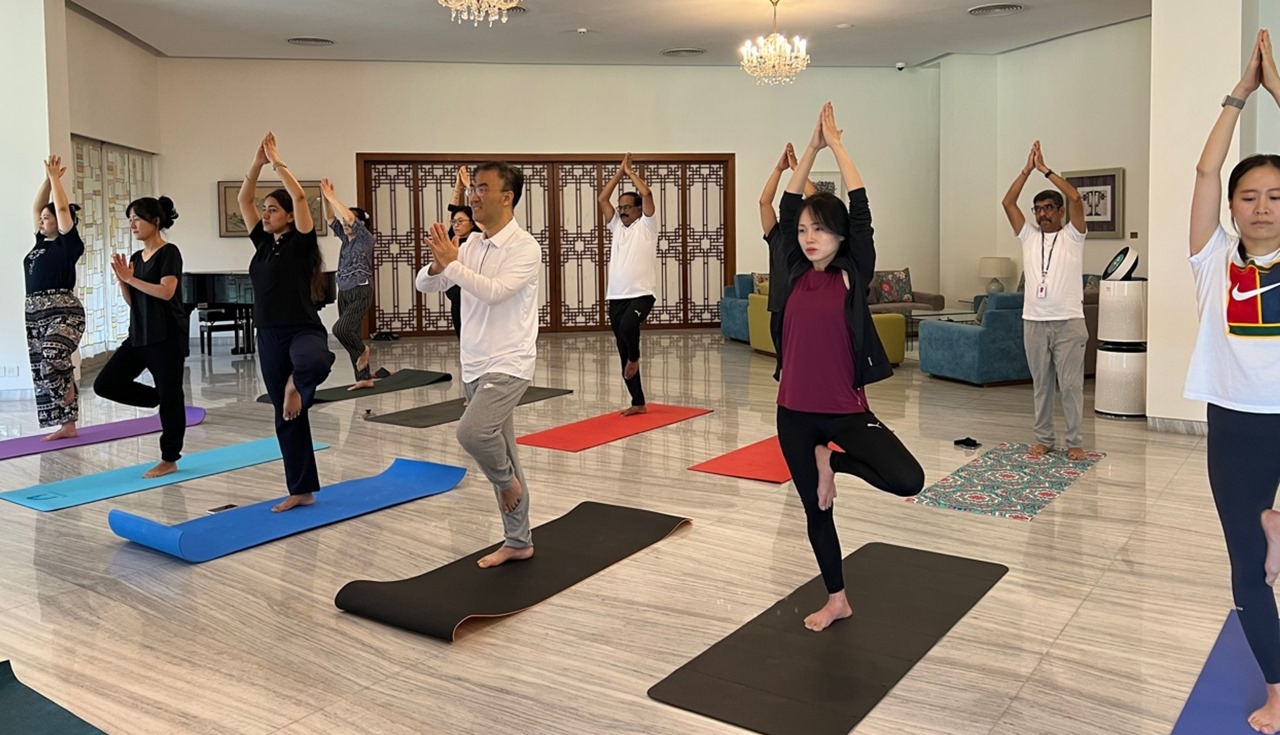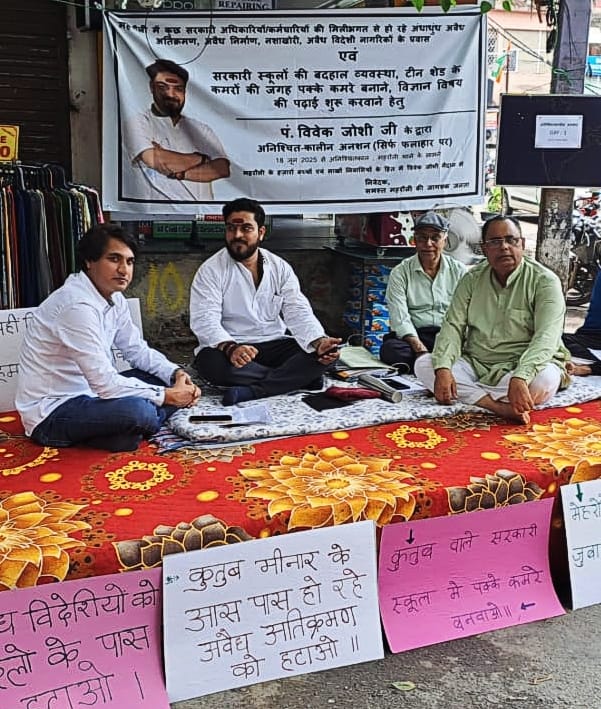Breathing as One: Yoga’s Philosophy of Healing in Everyday Korea

Authored by Hwang Il Yong
Director of Korean Cultural Centre India
New Delhi: the world will commemorate the 11th International Day of Yoga, celebrating yoga’s profound impact on global health and well-being. June 21 marks a day when the world breathes as one — a day when body, mind, and spirit come together through yoga. On the occasion of the 11th International Day of Yoga, Korea also takes part in honouring the values of balance and inner peace, with events held across the country to reflect on the transformative power of this ancient practice.
Yoga, a time-honoured practice originating from India, has transcended borders and cultures, offering physical, mental, and spiritual benefits. Beyond just a form of exercise, yoga is recognised worldwide for its ability to reduce stress, enhance concentration, and improve overall well-being.
In Korean society, yoga has evolved from a niche wellness trend into a mainstream practice embraced by people of all ages. Office workers turn to yoga at the end of the day to restore their mind and body, while university students seek it for emotional balance and stress relief. Older adults also find yoga effective in maintaining physical health and mental stability. Koreans practice yoga not only for physical fitness but also to enhance mental clarity and emotional resilience.
Over the past decade, yoga has been incorporated into Korea’s educational and public sectors, which have adopted yoga in both school and community programmes. Korean universities such as Seoul National University and Wonkwang Digital University now include yoga and meditation courses as part of their curriculum. Some high schools have introduced yoga into physical education to help students build emotional resilience. At the same time, community centres and welfare facilities actively offer yoga classes for middle-aged and senior citizens. Most gyms also provide group yoga classes that combine fitness and mindful movement, making yoga a highly accessible form of daily practice in Korea.
Interest in yoga in Korea is also growing as a platform for cultural exchange and international cooperation. To mark the 11th International Day of Yoga, South Korea is hosting an elaborate celebration at Gwanghwamun Square, Seoul, one of the nation’s most iconic spaces. Themed “Discover Your AURA,” the event will feature a fusion of Indian and Korean traditions, showcasing yoga demonstrations alongside traditional Korean dance performances. Adding a unique cultural touch, Priyavinyasa yoga will be accompanied by live Gayageum music, a revered Korean string instrument. This event highlights the shared values of mindfulness, harmony, and holistic wellness between India and South Korea.
In addition, the Embassy of the Republic of Korea in India will host a special yoga workshop on Wednesday, June 18, ahead of the International Day of Yoga. Held in India, the birthplace of yoga, the event reflects Korea’s active engagement in cultural dialogue and the growing participation of Koreans in yoga practice.
Beyond the annual celebration, yoga remains an integral part of Korean life. A rising number of Korean brands specialising in yoga apparel cater to the growing demand for yoga-related products. Yoga studios across Seoul and Busan offer diverse practices ranging from Hatha and Restorative yoga to innovative fusion styles like Aerial yoga and K-pop choreography yoga.
India and South Korea have actively collaborated to promote yoga and Ayurveda, recognising their significance in holistic wellness. In recent past, an important Memorandum of Understanding (MoU) was signed between Indian and Korean institutions to foster research and education in Yoga-Ayurveda. Additionally, South Korea has incorporated yoga into high school curriculums, reinforcing the commitment to mental and physical well-being among students. These initiatives highlight the shared efforts between both nations to integrate yoga into everyday life and academic frameworks.
Today, yoga in Korea has transcended passing trends to become a meaningful part of everyday life. Whether practiced in classrooms, community centres, or parks, yoga helps individuals reconnect with their inner selves, harmonise with others, and rediscover the rhythm of life. This breath that crosses borders reminds us that yoga remains a living tradition and a universal language — one spoken not with words, but through presence, awareness, and breath.




